NIL
NCAA Commission will watch how NIL money gets used
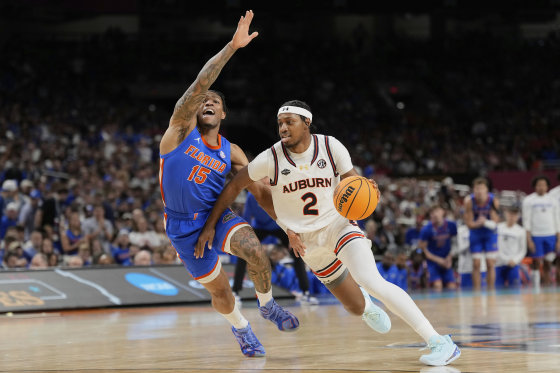
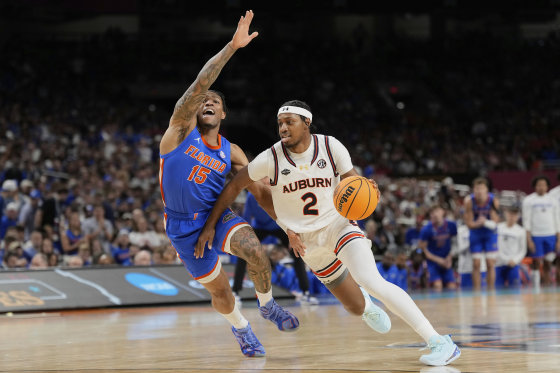

MIRAMAR BEACH, Fla. — On the one hand, what this new version of cash-infused college sports needs are rules that everybody follows.
On the other, they need to be able to enforce those rules without getting sued into oblivion.
Enter the College Sports Commission, a newly created operation that will be in charge of counting the money, deciding what a “fair market” deal for players looks like and, if things go well, helping everyone in the system avoid trips to court whenever a decision comes down that someone doesn’t like.
With name, image, likeness payments taking over in college, this group will essentially become what the NCAA committee on infractions used to be — the college sports police, only with the promise of being faster, maybe fairer and maybe more transparent.
In a signal of what the CSC’s most serious mission might be, the schools from the four biggest conferences are being asked to sign a document pledging not to rely on state laws – some of which are more permissive of payments to players — to work around the rules the commission is making.
“We need to get out of this situation where something happens, and we run to our attorney general and file suit,” said Trev Alberts of Texas A&M, one of 10 athletic directors who are part of another group, the Settlement Implementation Committee, that is helping oversee the transition. “That chaos isn’t sustainable. You’re looking for a durable system that actually has some stability and ultimate fairness.”
Number crunching to figure out what’s fair
In this new landsacpe, two different companies will be in charge of two kinds of number crunching.
The first, and presumably more straightforward, is data being compiled by LBi Software, which will track how much schools are spending on every athlete, up to the $20.5 million cap each is allowed to distribute in the first year of the new arrangement expected to begin July 1.
This sounds easy but comes with the assumption that universities – which, for decades, have sought to eke out every edge they can, rulebook or no – will provide accurate data.
“Over history, boosters have looked for ways to give their schools an advantage,” said Gabe Feldman, a sports law professor at Tulane. “I think that will continue even with the settlement.”
Adding some level of transparency to the process, along with the CSC’s ability to deliver sanctions if it identifies cheaters, will be key to the new venture’s success.
“There’s legal risk that prohibits you from doing that,” Alberts said. “But we want to start as transparent as we can be, because we think it engenders trust.”
Good intentions aside, Alberts concedes, “I don’t think it’s illogical to think that, at first, it’s probably going to be a little wonky.”
How much should an endorsement deal be worth?
Some of the wonkiest bookkeeping figures to come from the second category of number crunching, and that involves third-party NIL deals. The CSC hired Deloitte to run a so-called clearinghouse called “NIL Go,” which will be in charge of evaluating third-party deals worth $600 or more.
Because these deals aren’t allowed to pay players simply for playing – that’s still technically forbidden in college sports — but instead for some service they provide (an endorsement, a social media shoutout and so forth), every deal needs to be evaluated to show it is worth a fair price for what the player is doing.
In a sobering revelation, Deloitte shared with sports leaders earlier this month that around 70% of third-party deals given to players since NIL became allowable in 2021 would have been denied by the new clearinghouse.
All these valuations, of course, are subject to interpretation. It’s much easier to set the price of a stock, or a bicycle, than the value of an athlete’s endorsement deal. This is where things figure to get dicey. Though the committee has an appeals process, then an arbitration process, ultimately, some of these cases are destined to be challenged in court.
“You’re just waiting to see, what is a ‘valid business purpose’ (for an NIL deal), and what are the guidelines around that?” said Rob Lang, a business litigation partner at Thompson Coburn who deals with sports cases. “You can see all the lawyer fights coming out of that.”
Avoiding court, coordinating state laws are new priorities
In fact, elements of all this are ripe to be challenged in court, which might explain why the power conferences drafted the document pledging fealty to the new rules in the first place.
For instance, Feldman called a law recently enacted in Tennessee viewed by many as the most athlete-friendly statute in the country “the next step in the evolution” of state efforts to bar the NCAA from limiting NIL compensation for athletes with an eye on winning battles for recruits and retaining roster talent.
“What we’ve seen over the last few years is states trying to one-up each other to make their institutions more attractive places for people to go,” he said. “This is the next iteration of that. It may set up a showdown between the schools, the NCAA and the states.”
Greg Sankey, the commissioner of the Southeastern Conference, said a league spanning 12 states cannot operate well if all those states have different rules about how and when it is legal to pay players.
The SEC has been drafting legislation for states to pass to unify the rules across the conference. Ultimately, Sankey and a lot of other people would love to see a national law passed by Congress that does that for all states and all conferences.
That will take months, if not years, which is why the new committee drafted the document for the schools to sign.
“We are all defendant schools and conferences and you inherently agree to this,” Alberts said of the document. “I sat in the room with all of our football coaches, ‘Do you want to be governed?’ The answer is ‘yes.’”
NIL
No easy fix for what ails college football, but it’s still fun
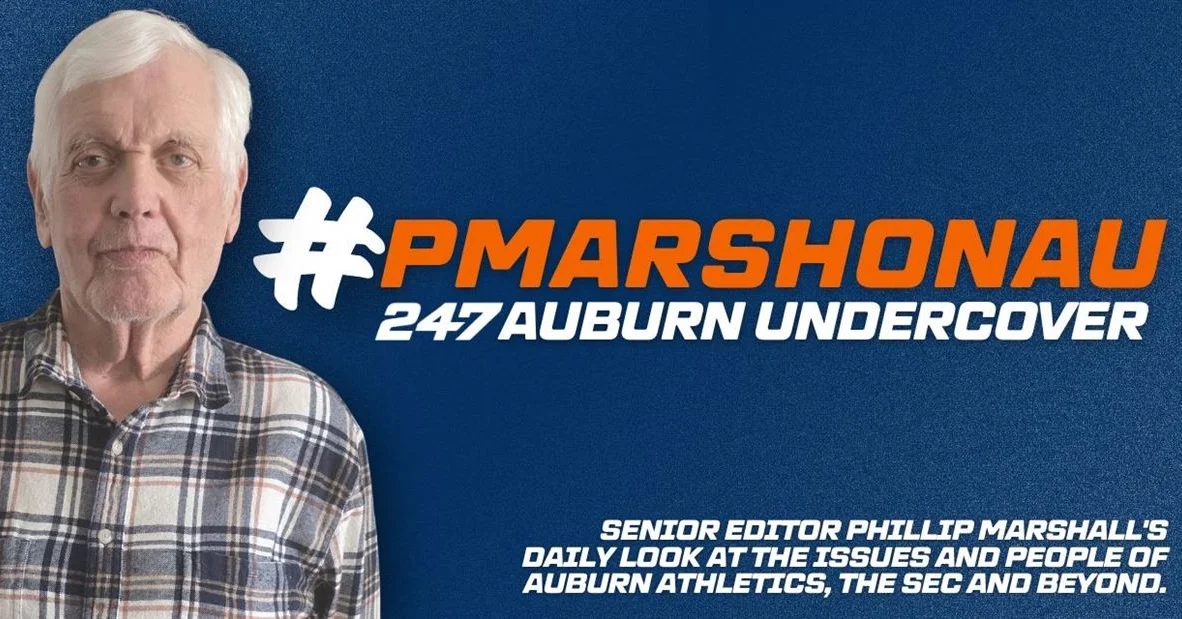
As much as the state of college athletics these days drives people to distraction, coaches and administrators don’t have many options.
So, you don’t like players being paid? You don’t like players have the ability to transfer to another program anytime they choose? You don’t like lawyers and agents raking in huge amounts of cash? What can unhappy fans do about it?
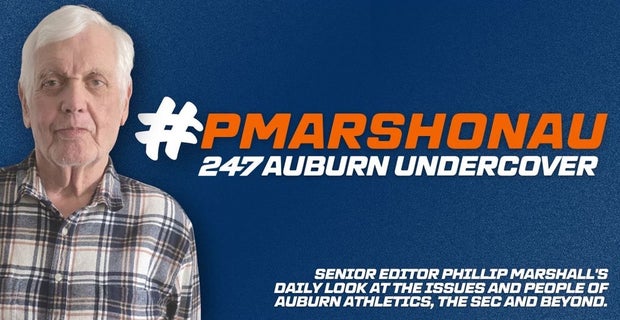
You can stop supporting your favorite program. You can stop going to games or even watching games. If enough people do that, what they will accomplish is making it more difficult for their favorite programs to win. They will change nothing.
Despite all of it, coaches are expected to win. Athletics directors are expected to provide the resources for them to win. They have no choice but to play the game with the rules – or lack thereof – in place today.
Is it out of control? Of course it is, in football and basketball. Will there be efforts to mitigate the damage that is being done to the sports so many love? There will be. Will they be successful? Maybe, but so far we’re not seeing it. Yet, TV ratings are higher than ever. Stadiums are filled. It’s still fun, which is what it was always meant to be.
For sure, there are some misconceptions out there.
Players, in fact, can and do sign contracts. There is nothing to keep them from signing multi-year contracts, but those are iffy for both sides. Maybe a player turns out not to be worth what he is being paid. Or maybe he turns out to be worth more than he’s being paid.
None of this is simple. It is further complicated by agents who are neither qualified nor interested in much anything beyond making money for themselves.
Maybe, one day, someone will find a solution. Maybe Congress will step in and help, though there has been no indication that is close to happening.
Players and coaches are better-trained, better-informed and more knowledgeable than they have ever been. Players are not the spoiled, entitled young men they are accused of being. They are being pulled in all sorts of directions by family, agents, boosters and others with agendas of their own.
Almost every effort to find common ground has blown up.
The December signing period was meant to give players who had made up their minds opportunities to get the recruiting process over with. Previous to that move, it was rare for players to graduate early and enroll in time for spring practice. Now, it’s what every coach wants and most players want.
NIL was supposed to be about players having opportunities to earn spending money, maybe even get a car. It was never meant to make anybody wealthy. Along came collectives, and that changed.
Penalty-free transfers were supposed to be about players having opportunities to go in search of more playing time. Instead, added to NIL, it become a monster. Without penalty-free transfers, things would be different today.
For now, if people let this destroy their love for the game, they are letting the forces of chaos win. It’s still college students – yes, they are students – playing football. And they pay a fearsome price in blood, sweat and mental challenges to do it.
Once the portal has opened and closed and rosters begin to be set, things will calm down. The focus will return to where it should be, on those who play the game and the season ahead.
***
To all of you who do us the honor of coming here to read and comment and debate, and to Ron Sanders, Nathan King, Christian Clemente, Jason Caldwell and Patrick Bingham, my valued colleagues, I wish joy, peace and love on this day.
NIL
Oregon Ducks Could Steal Another Transfer Portal Player From USC Trojans
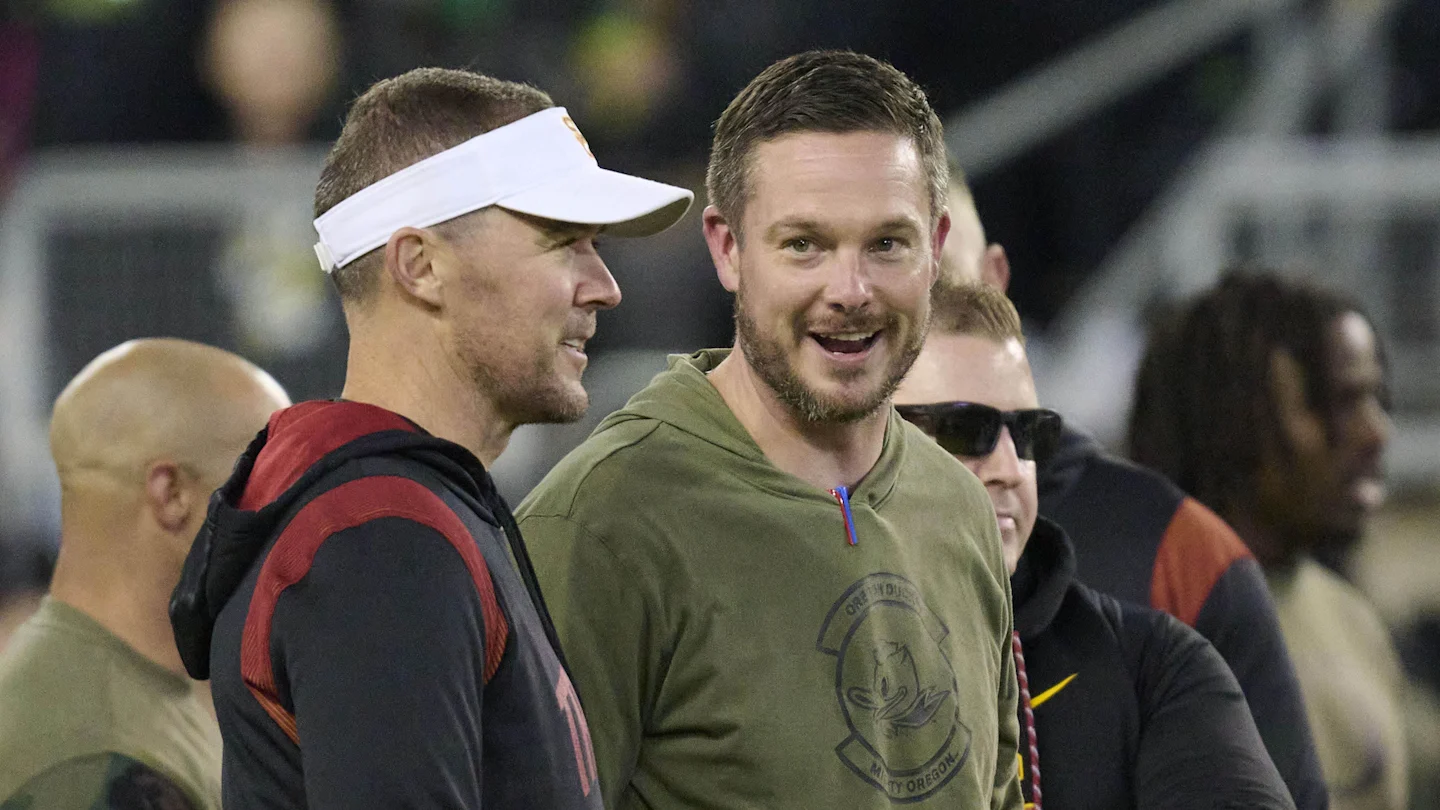
The Oregon Ducks are in the middle of what hopes to be a memorable run to the National Championship after beating the James Madison Dukes 51-34 in the first round of the College Football Playoff at Autzen Stadium on Saturday.
But with the way the transfer portal calendar works, the coaching staff is still having to do its due diligence when it comes to targeting new additions for next year’s roster.

The Ducks have already been connected to some notable portal players, including Arizona State quarterback Sam Leavitt. More names will certainly be added to the list in the coming weeks, but one interesting player could be joining the mix.
Per reports from On3’s Pete Nakos, Oregon is a potential team to watch for USC Trojans defensive lineman Devan Thompkins. He spent the past three years with the Trojans and
This mirrors what Oregon did last offseason with defensive lineman Bear Alexander, who spent the 2023 and ’24 seasons at USC before transferring to Eugene. This proved to be a
MORE: Three Biggest Takeaways From Oregon’s Playoff Win Over James Madison
MORE: Oregon Coach Dan Lanning Is Turning Heads For Ducks’ Playoff Entrance
MORE: National Championship Betting Odds After Oregon’s Win Over James Madison
SIGN UP FOR OUR NEWSLETTER HERE!
Alexander, who played his freshman season with the Georgia Bulldogs before joining USC, has already confirmed that he will be returning to Oregon for the 2026 season.
“I prayed for this moment. Grateful beyond words to be back on the field. Every doubt, every setback, every hard day led me back here. I am truly thankful for my staffs commitment to my growth both personally and professionally. Stepping back onto this field felt like breathing again and I’m forever grateful. Being away from the game last year was tough, I really missed this more than I can explain. Thankful for the strength, support, and grace that brought me back to this point in my life with all my dreams within reach,” wrote Alexander onto social media.
Alexander posted 45 total tackles and one sack during the regular season with Oregon. In his second-career CFP game against James Madison on Saturday, he had four total tackles (two solo).

As for Thompkins, it’s a bit too early to know which team he will end up choosing, as the portal is set to open on Jan. 2 after the College Football Playoff Quarterfinals.
However, if he does end up choosing Oregon, the Ducks would be getting an experienced player on the defensive line while simultaneously snagging him away from a Big Ten rival.
This past season, Thompkins had 31 total tackles (18 solo), three sacks, one forced fumble and two pass breakups. He had 4.5 career sacks in three seaons with the Trojans.
But before looking too far ahead when it comes to the portal, the Ducks will look to keep their championship hopes alive on New Year’s Day at the Orange Bowl in Miami against the Texas Tech Red Raiders.
Recommended Articles
NIL
Report: Terry Smith’s lack of FBS head coaching prevented him from landing Penn State job
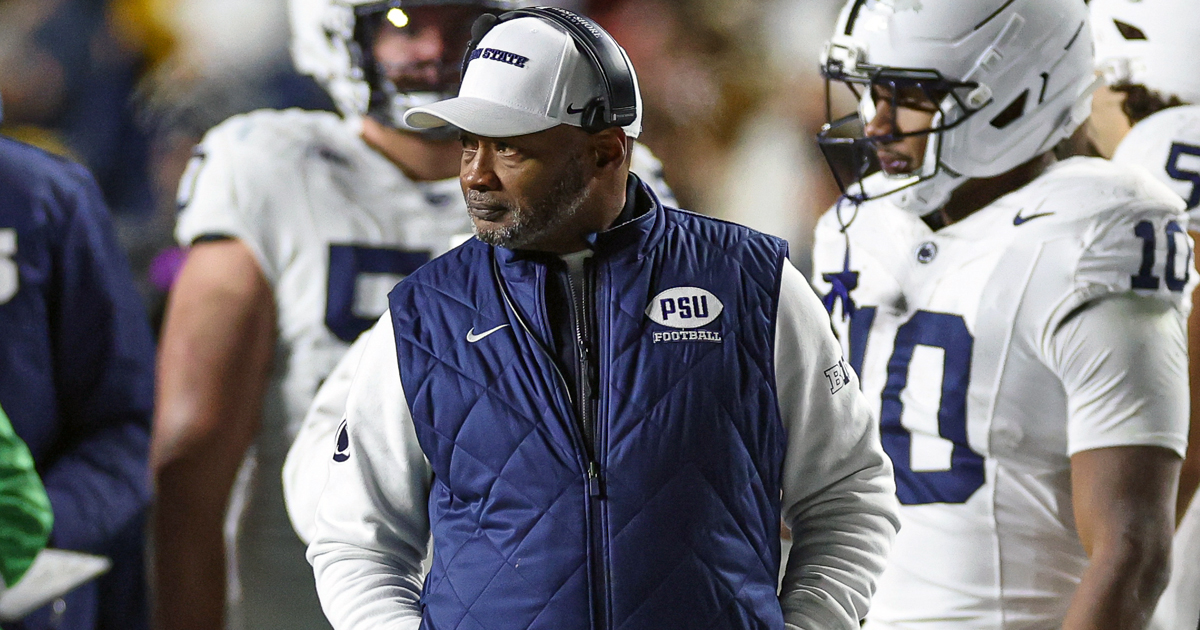
Despite being one of the first major Power Four openings following the Oct. 12 firing of James Franklin six games into the season, Penn State was without a full-time head football coach for 58 days until Iowa State‘s Matt Campbell was formally hired on Dec. 5.
During the two-month-long coaching search, more than 10 candidates — from Alabama‘s Kalen DeBoer to Nebraska‘s Matt Rhule — were reportedly mentioned in connection to the Nittany Lions opening, even if most were never serious options. Several of those candidates — Rhule, Indiana‘s Curt Cignetti and BYU‘s Kalani Sitake — received lucractive contract extensions just for being mentioned in connection to Penn State.
In the meantime, longtime assistant and interim head coach Terry Smith did his best to pick up the pieces of the once-promising season and closed out on a three-game win streak to secure bowl eligibility for Penn State (6-6). That late-season surge helped boost support for Smith to be promoted to full-time head coach, especially among current and former players.
During Penn State’s victory over Rutgers, multiple players held up signs that read, “Hire Terry Smith,” which showed the amount of support the veteran coach had built within the program. Former PSU star Michael Robinson also advocated for Smith to get the top job.
Terry Smith on support from PSU alumni: ‘It means everything’
“It means everything,” Smith said in late November. “Obviously, the support that the lettermen are giving me, especially Michael Robinson doing that, obviously it means we’re doing something right. Just trying to create a culture for our team to play hard, play tough, and for our fans to get behind us and support us and stay in our corner.”
Smith, a four-year letter winner between 1987-91 under legendary head coach Joe Paterno, was ultimately retained and will return as the associate head coach under Campbell. But the lengthy search left many wondering why the 56-year-old alum and longtime associate head coach wasn’t given more serious consideration.
Turns out Smith was a “legitimate candidate,” according to a detailed report from ESPN’s Adam Rittenberg, Max Olson and Eli Lederman released on Christmas Eve. The ESPN report revealed Smith was among five candidates that actually interviewed with PSU athletic director Pat Kraft, though he “ultimately lacked the FBS head coaching experience Penn State desired.”
Of course, prior to his interim gig this season, Smith has never led his own collegiate football program. The former collegiate receiver nicknamed “Superfly” has served as the Nittany Lions’ cornerbacks coach since 2014, adding the title of assistant head coach two years later in 2016 before becoming the associate head coach in 2021. Given that wealth of experience, Smith was a priority for Campbell and Penn State, which reportedly made him college football’s highest-paid non-coordinator, according to NFL insider Jordan Schultz.
NIL
Kaleb Glenn gives perfect example of how NIL can be used the right way

Tom Izzo has been vocal about disliking the direction in which college athletics are headed, and it has a lot to do with the transfer portal and the crazy NIL deals that players are signing.
Some college athletes are making more than professionals and that irks Izzo. He also thinks that it’s doing these athletes a disservice. He’s not against NIL, if it’s used correctly.
Izzo has to love what Kaleb Glenn is doing with his NIL money, however.
Huge shout out to Kaleb Glenn, a @MSU_Basketball player and native Louisvillian, who donated $5,000 of his NIL proceeds to our Hardship to Hope effort.
Thank you, Kaleb, for giving back to our community and for setting such a great example! ♥️#UnitedIsTheWay pic.twitter.com/rj6hgnmkFZ
— Metro United Way (@MetroUnitedWay) December 23, 2025
Glenn donated $5,000 to his local United Way for their Hardship to Hope effort over the holiday break, and that’s something that no one told him to do, but he wanted to give back. Glenn is from Louisville, so he’s giving back to his hometown’s United Way. That’s exactly why NIL can be a good thing because these players want to be able to give back.
The FAU transfer hasn’t even played a game this season, but he’s now the second Spartan that has done charity work during the holidays (at least publicly).
Earlier this month, Trey Fort provided food at a local food bank for people in need. Izzo has built a program of players who are willing to give some of their hard-earned NIL money back. That’s something that not a lot of programs have.
Tom Izzo has assembled a roster of OKGs
Not often does it feel like all the players on a team are great for the program, but you can just tell that Michigan State’s roster is full of “OKGs”, as Izzo calls them.
Jeremy Fears Jr. is one of the best leaders that Izzo has ever coached, Jaxon Kohler has turned into a great leader, too, Carson Cooper and Coen Carr have also grown into that role, the freshmen seem to be learning quickly, and the transfers are doing charity work left and right.
The entire team feels like a perfect Izzo mold.
Rarely has Izzo had guys who didn’t buy into his culture or sense of family, but this year’s team seems to be exactly what he hoped for — much like last year’s squad.
We’ll see if this pays off with a run at a national title.
NIL
Texas’ Michael Taaffe Delivers Critical NIL Advice to Young Athletes
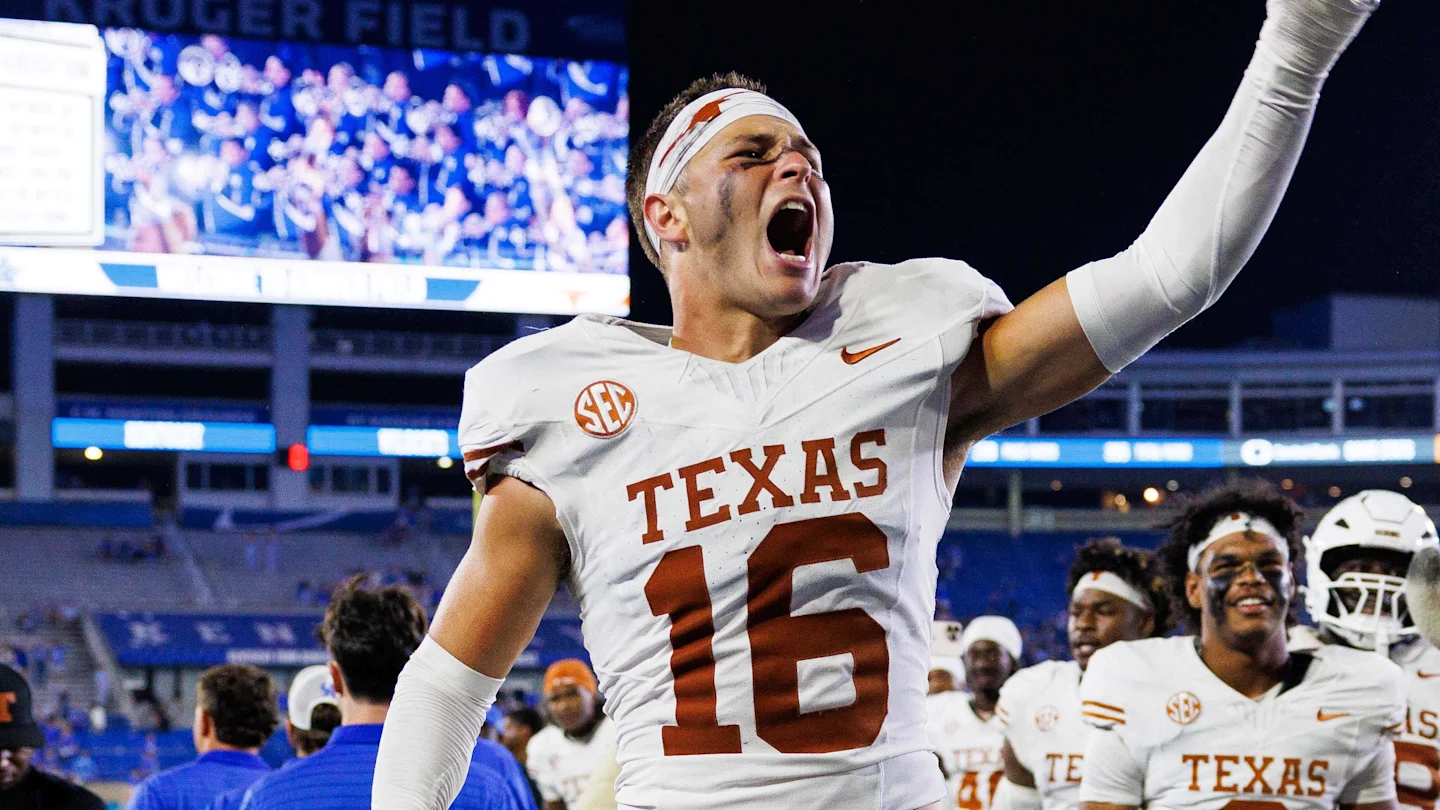
After five seasons with Texas, safety Michael Taaffe is leaving the Longhorns and declaring for the NFL Draft. In those five years, Taaffe went from a walk-on with no guarantee of playing time to an All-American fan favorite who proved he was capable of standing out among SEC safeties.
Now, as he embarks on his NFL journey, Taaffe continues to provide advice for younger players entering their collegiate careers, most recently speaking on NIL.
Taaffe Emphasizes Brand Awareness to Young Athletes

“How do you want your platform to be remembered?” Taaffe said, according to On3. “I think everybody is an entrepreneur in the game of football. You all have your own business. You all have your own brand. How do you want your brand to be remembered?”
Texas is currently ranked as the nation’s most valuable athletic program, according to a report by CNBC. As one of the standout players for the Longhorns, Taaffe has been able to reap the benefits of that valuation, but is selective of what he endorses.
“When I say this, I don’t mean to take any shots at anybody, but do you want your brand to be… [an] Instagram filled [with] the local sandwich shop or the local smoothie shop or the local clothing store?” Taaffe said. “Or, do you want it filled for good and significance in your life that will be far more important than $5,000 or $10,000? That’s how I truly live it.”
According to a June article from Athlon Sports, Taaffe’s NIL valuation stands at $468,000. Some of his biggest partnerships have included Sonic, where he worked with some fellow Longhorns, and SeatGeek.
While he says he doesn’t have the exact formula for navigating NIL, what athletes must consider is what they want their brand to represent.
“There’s no wrong or right way to go about NIL, it’s just, how do you want your business to be programmed and ran?” Taaffe said. “I’ve been chosen to be on the side of, I want my brand to mimic who I am as a person. I believe that my calling is to give back. I’ve been trying to use my brand to give back.”
Taaffe was recently awarded the 2025 Allstate Wuerffel Trophy, the college’s premier award for community service, according to the award’s website. Credited for his community service outreach, Taaffe now looks to the next generation of college players to carefully weigh their decisions when it comes to their brand.
NIL
Washington Huskies Star WR Denzel Boston Declares for 2026 NFL Draft
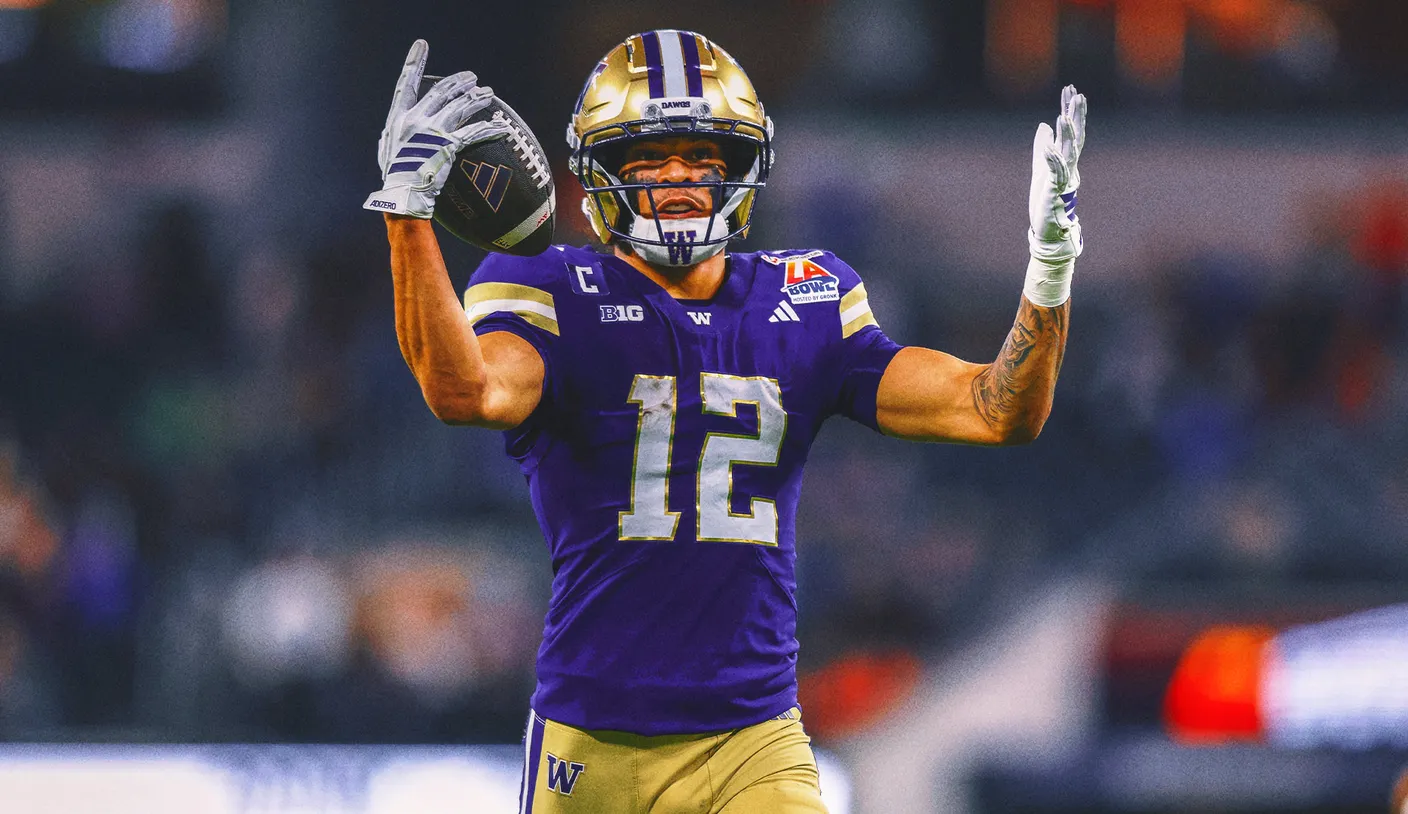
Washington wide receiver Denzel Boston plans to enter the 2026 NFL Draft, he announced on Wednesday on social media.
The 6-foot-4, 210-pound Boston had 62 receptions for 881 yards and 11 touchdowns this season as a junior, earning third-team All-Big Ten honors. Last year, he had 63 catches for 834 yards and nine touchdowns.
In Washington’s 38-10 win over Boise State in the LA Bowl on Dec. 13, Boston caught six passes for 126 yards, including a 78-yard touchdown.
The 22-year-old is from South Hill, Washington, 45 miles south of Husky Stadium.
“Every time I stepped on that field,” Boston said, “it was for the city that raised me and the people who supported me from day one.”
FOX Sports NFL Draft expert Rob Rang had the Los Angeles Rams selecting Boston with the 31st overall pick in his most recent mock draft. Rang also ranked Boston as the fifth-best wide receiver in the 2026 draft class in October.
The Associated Press contributed to this report.
Want great stories delivered right to your inbox? Create or log in to your FOX Sports account, and follow leagues, teams and players to receive a personalized newsletter daily!
-

 Motorsports2 weeks ago
Motorsports2 weeks agoSoundGear Named Entitlement Sponsor of Spears CARS Tour Southwest Opener
-

 Motorsports2 weeks ago
Motorsports2 weeks agoDonny Schatz finds new home for 2026, inks full-time deal with CJB Motorsports – InForum
-
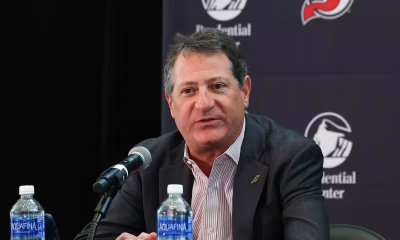
 Rec Sports2 weeks ago
Rec Sports2 weeks agoDavid Blitzer, Harris Blitzer Sports & Entertainment
-

 Motorsports3 weeks ago
Motorsports3 weeks agoJR Motorsports Confirms Death Of NASCAR Veteran Michael Annett At Age 39
-
Sports3 weeks ago
Elliot and Thuotte Highlight Men’s Indoor Track and Field Season Opener
-
Sports3 weeks ago
West Fargo volleyball coach Kelsey Titus resigns after four seasons – InForum
-
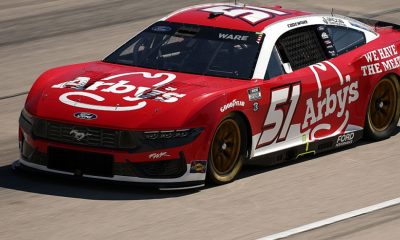
 Motorsports2 weeks ago
Motorsports2 weeks agoRick Ware Racing switching to Chevrolet for 2026
-

 NIL2 weeks ago
NIL2 weeks agoDeSantis Talks College Football, Calls for Reforms to NIL and Transfer Portal · The Floridian
-
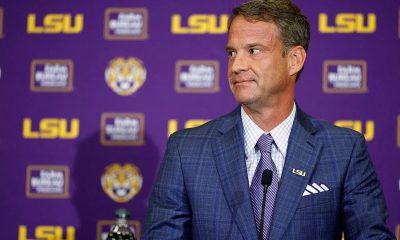
 NIL3 weeks ago
NIL3 weeks agoColleges ponying up in support of football coaches, programs
-

 Sports2 weeks ago
Sports2 weeks ago#11 Volleyball Practices, Then Meets Media Prior to #2 Kentucky Match































